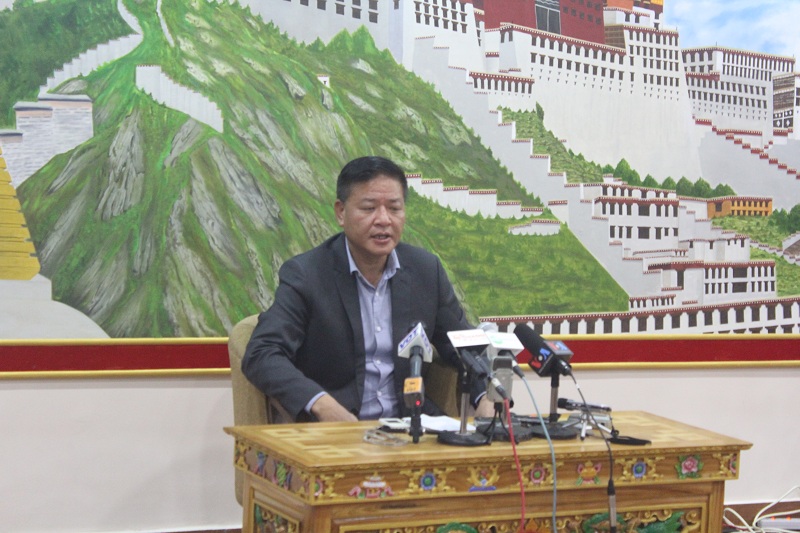Nepal should not repeat the mistake of Tibet: UP CM

DHARAMSALA, 5 June: The Chief Minister of Uttar Pradesh has warned Nepal not to repeat the mistake of Tibet.
Uttar Pradesh Chief Minister Yogi Adityanath has made the remarks while addressing reporters on Wednesday, the PTI reported.
For the uninitiated, in 1950, the newly established Chinese Communist regime began its occupation of Tibet in the name of peaceful liberation and democratic reform of Tibet.
March 10th, 2020 marked the 61st anniversary of the Tibetan National Uprising Day. On March 10, 1959, sensing a Chinese plot to abduct His Holiness the Dalai Lama, more than 300,000 Tibetans surrounded his summer palace, Norbulingka to protect his life and to protest against the Chinese occupation.
Seven days later, His Holiness the Dalai Lama left Lhasa and fled to India followed by 80,000 Tibetans into exile.
The number has now increased to approximately 1,28,014 as estimated by the Central Tibetan Administration, the Tibetan government in exile.
The Chief Minister’s remarks came as Nepal has been costing up to China of late.
“The two countries have cultural, historical and mythological links that date back to several centuries and Nepal should remember this,” he was quoted as saying in the report.
Coincidently, Nepal on Wednesday came out strongly in favour of the ‘one China policy’, and declared that it considers Hong Kong to be an “integral” part of China.
Additionally, Nepal and India have were caught up in a border dispute recently over Lipu Lekh, a disputed area that lies at a strategic three-way junction with Tibet and China in the Himalayan region.
Meanwhile, Nepal has tabled a Bill in Parliament to alter its map which shows Lipulekh, Kalapani and Limpiyadhura as part of its territory as well.
Earlier this year in Jan, ascertaining speculations about prospective Nepal-China agreements to curb the entry of Tibetans in Nepal, the two countries — Nepal and China — have inked a secret agreement to handover people entering illegally to each other’s country without enough supporting documents from their country of origin.






